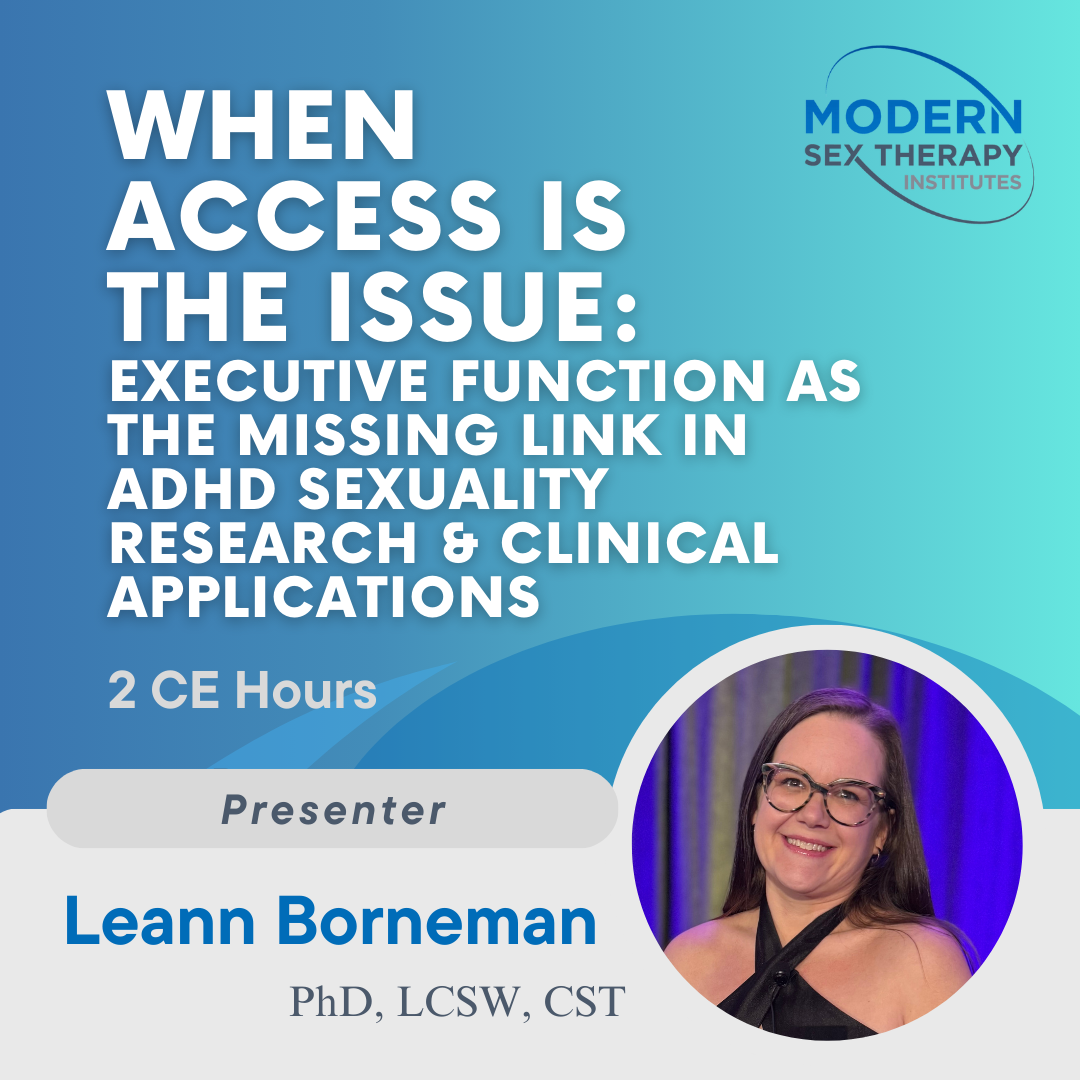When Access Is the Issue: Executive Function as the Missing Link in ADHD Sexuality Research & Clinical Applications (2 CE Hours)
$80.00
Presented by: Leann Borneman, PhD, LCSW, CST
2 CE Hours
Available on demand via recording
AASECT Category: Sex Therapy Education, Section C
Description:
While ADHD is often discussed in relation to distractibility, impulsivity, and emotional dysregulation, its impact on sexuality and intimacy is still under theorized, and often misunderstood. Most research in this space focuses on behavioral outcomes or relational dissatisfaction, without considering the executive function demands embedded in intimacy itself.
This workshop positions executive function as a critical, but often missing, framework in understanding how adults with ADHD navigate intimacy. Drawing from existing research and clinical practice, Dr. Leann Borneman outlines how functions like task initiation, working memory, inhibition, and emotion regulation shape patterns of connection, desire expression, communication, and sexual access.
Rather than pathologizing neurodivergent intimacy, this course explores how typical interventions, like spontaneous touch, open ended communication, or mindfulness, often fail not due to lack of motivation, but due to cognitive inaccessibility. Participants will leave with a richer understanding of how executive function frameworks can enhance clinical insight, research inquiry, and ethical care for neurodivergent clients navigating intimacy.
Learning Objectives:
At the end of this webinar, participants will be able to:
- Describe how executive function domains such as inhibition, working memory, task initiation, and emotional regulation affect relational and sexual dynamics in ADHD adults.
- Evaluate common clinical and educational approaches to intimacy for neurodivergent clients and identify when executive function barriers may require alternative strategies or accommodations.
Speaker Bio:
Dr. Leann Borneman, LCSW, CST is a licensed therapist, clinical sexologist researcher, AASECT certified sex therapist and educator specializing in the intersection of ADHD, relationships, and sexuality. With over six years of clinical experience, she works at the intersection of executive functioning, intimacy, and ADHD lived experience. Dr. Borneman’s work helps professionals reexamine assumptions about intimacy challenges in ADHD adults by shifting the focus from motivation and emotional factors to the often-overlooked role of cognitive access, environmental design, and relational scaffolding. Her clinical practice and public education advocate for neurodivergent informed models of intimacy that are accessible, ethical, and affirming.
Class originally recorded: 12/6/2025.
Social workers completing this course receive 2 general continuing education credits.

